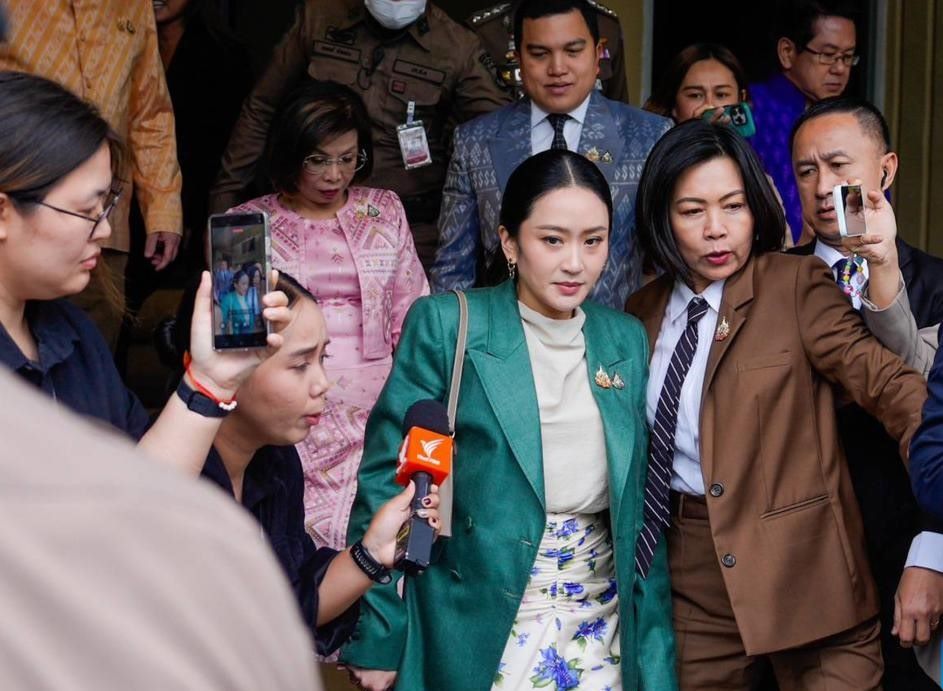As August enters a key period, Thai political observers closely monitor the developments of the incident related to the recording of the exchange between Ms. Paetongtarn and President of the Cambodian Senate Hun Sen on June 18, 2025. The key issue is whether she will continue to hold the position of Prime Minister under Articles 170(1)(4) and 160(4) (4) (5) of the Constitution.
The Bangkok Post reported that according to the schedule, the Constitutional Court will summon witnesses to the plaintiff on August 21 and is expected to issue a verdict on August 29, 2025.
Speculation about the possibility of Ms. Paetongtarn resigning before the verdict has risen again when she was absent from two consecutive cabinet meetings. Many sources said that this could be a "sign" that she is preparing to withdraw, similar to the case of former Prime Minister Pichit Chuenban in 2024.
Mr Pichit resigned just 24 days after his appointment, before the Constitutional Court accepted his petition for consideration of his status. Therefore, the Court did not continue to review the case related to him.
However, Ms. Paetongtarn's case is different: The trial is in the final stages, with only two more sessions before the verdict. Even if she resigns, legal experts say the court still has to continue to issue a verdict because the case is still legally significant.

In addition to the "recording" case, Ms. Paetongtarn also faced a number of other cases. The National Anti-Corruption Commission (NACC) on June 23, 2025 received a petition related to the accusation of violating ethical standards. According to Mr. Saroj Phungramphan, NACC Secretary General, the case is in the early stages of consideration and could be extended if an in-depth investigation is needed.
In addition, NACC also agreed to consider a "budget transfer", related to the transfer of 35 billion baht (more than 1 billion USD) from state-owned banks to the central budget, allegedly to implement an e-wallet program to distribute 10,000 baht in cash (more than 300 USD) to people. This move is suspected to violate Article 144 of the Constitution.
Thus, even though Ms. Paetongtarn has resigned as Thai Prime Minister, other legal cases continue to be handled and cannot be closed.
If the results are positive, Ms. Paetongtarn will retain her position as Prime Minister, and the government will have the opportunity to continue to operate and resolve urgent socio-economic issues.
Conversely, if the Court decides to force her to resign, the Thai government will enter a period of change, with the process of choosing a new Prime Minister.
The list of potential candidates mentioned includes: Mr. Chaikasem Nitisiri (Pheu Thai Party), Mr. Anutin Charnvirakul (Bhumjaithai Party), former Prime Minister Prayut Chan-o-cha and Mr. Pirapan Salirathavibhaga ( United Thai Nation Party), and Mr. Jurin Laksanawisit (Democratic Party).
The situation became even more sensitive when the recent budget vote - which was a key law - was only passed in a narrowrow range, reflecting the uncertain stance of the government.
In this context, all focuses are on the end of August, when the Constitutional Court will issue a ruling that could decide the political future of Ms. Paetongtarn Shinawatra and open a new turning point for Thailand.











